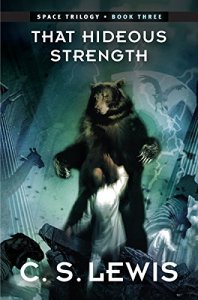As a guide to the Prometheus Awards and for the convenience of Libertarian Futurist Society members, the Prometheus Blog has once again published full-length and in-depth reviews of all of this year’s Prometheus Hall of Fame finalists for Best Classic Fiction.
Libertarian Futurist Society members, who have the right to vote to select the annual Best Classic Fiction winner from the finalists, are invited to read our reviews of the five novels selected as 2026 finalists – hopefully, to whet your appetite to read each finalist and vote in this year’s Prometheus Awards.
First published between 1932 and 2003, the five finalists were written by James Blish (The Star Dwellers), C.S. Lewis (That Hideous Strength), Aldous Huxley (Brave New World), Adam Roberts (Salt) and Charles Stross (Singularity Sky).
Other SF/fantasy fans and other libertarians, outside the LFS, also are invited to check out the reviews to better understand how they fit the distinctive dual focus of the Prometheus Awards on both quality and liberty.











